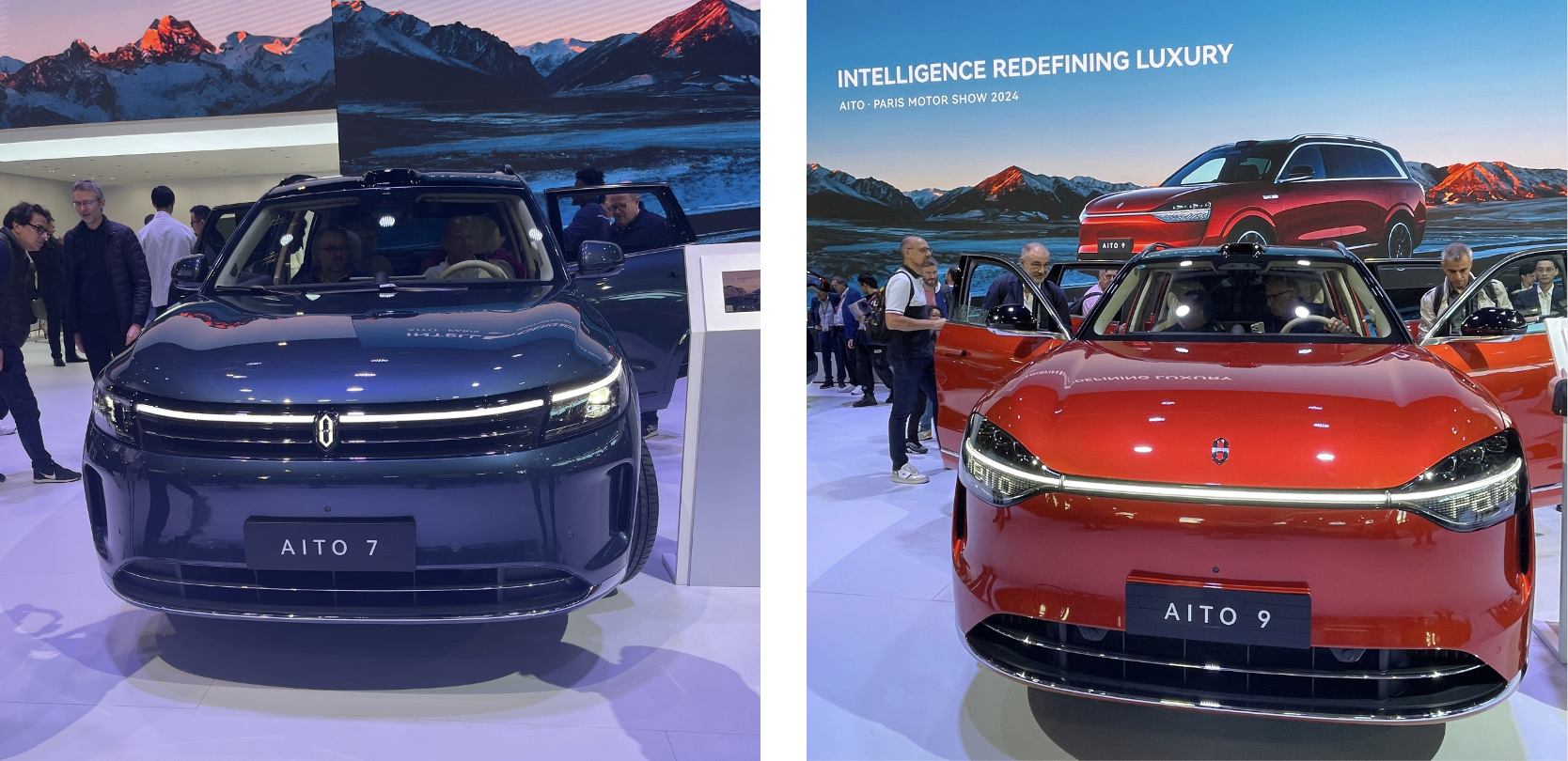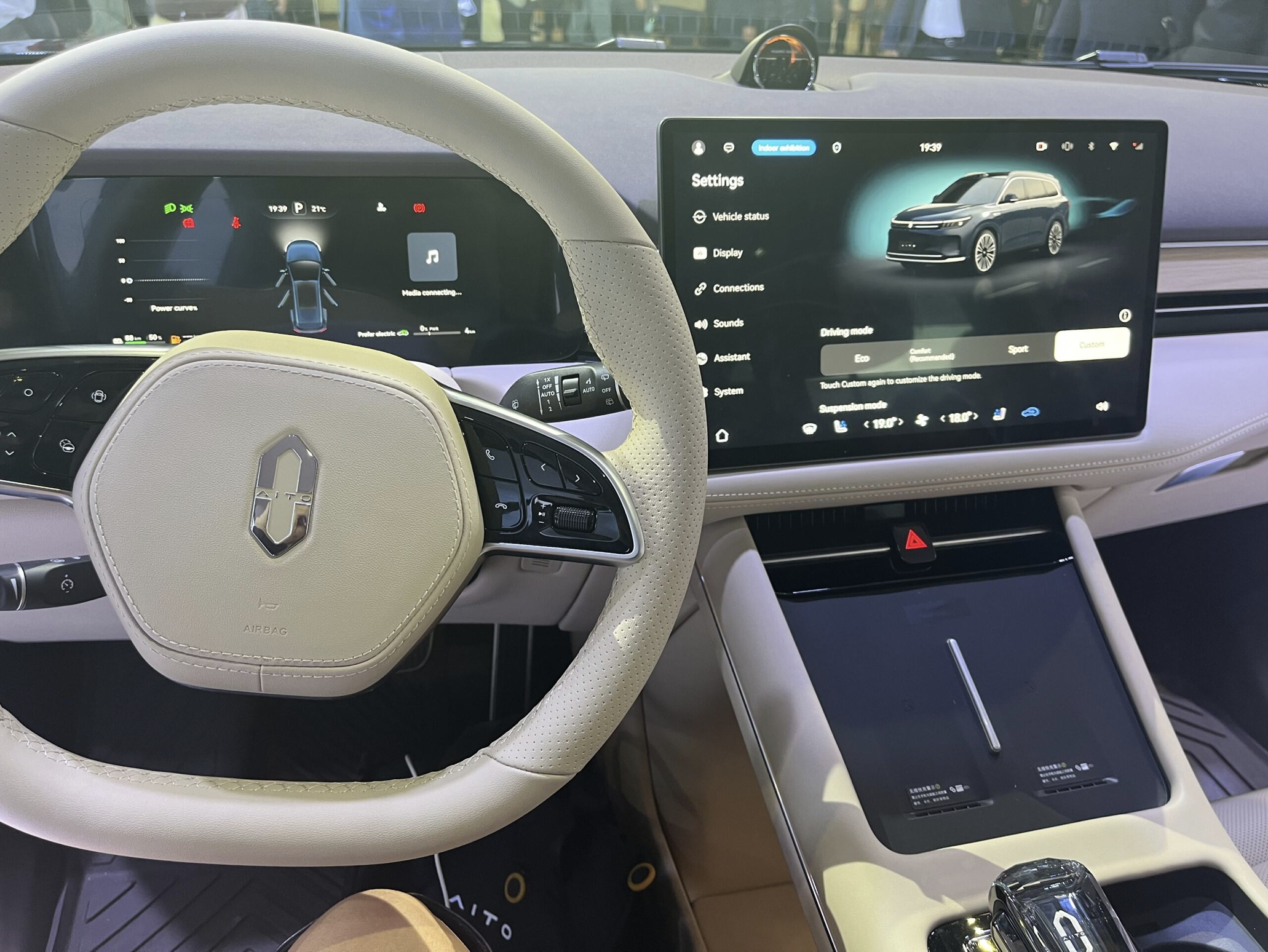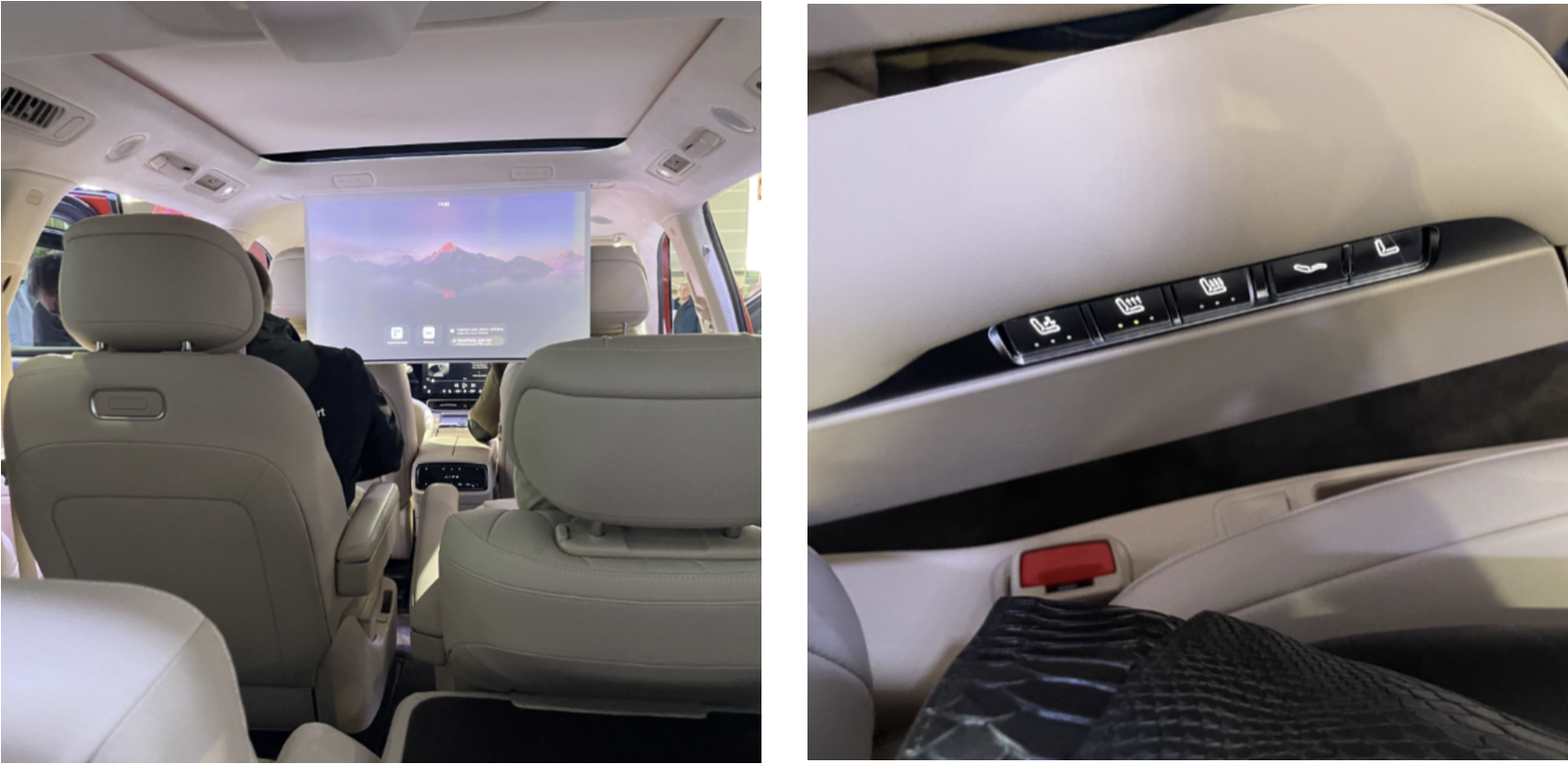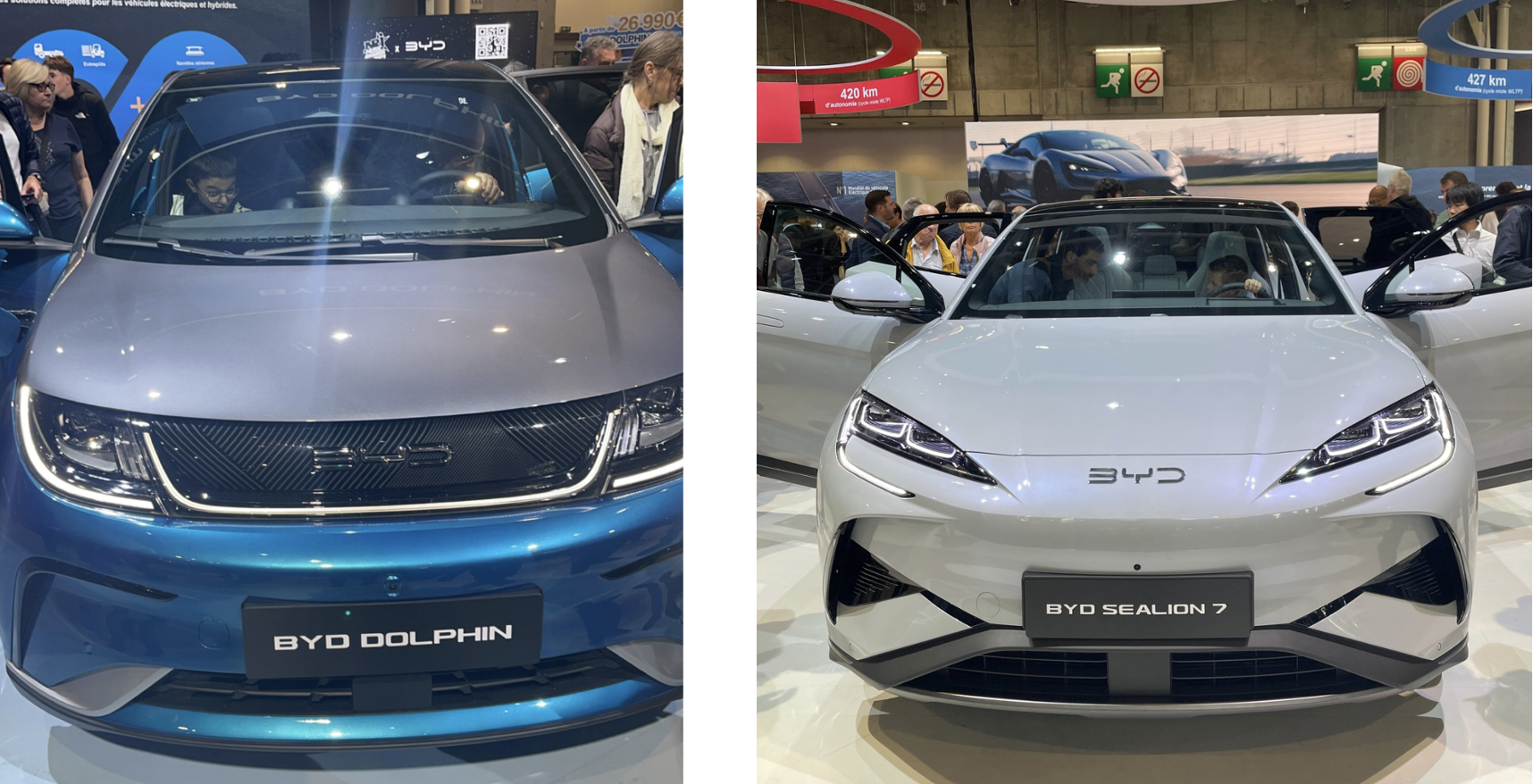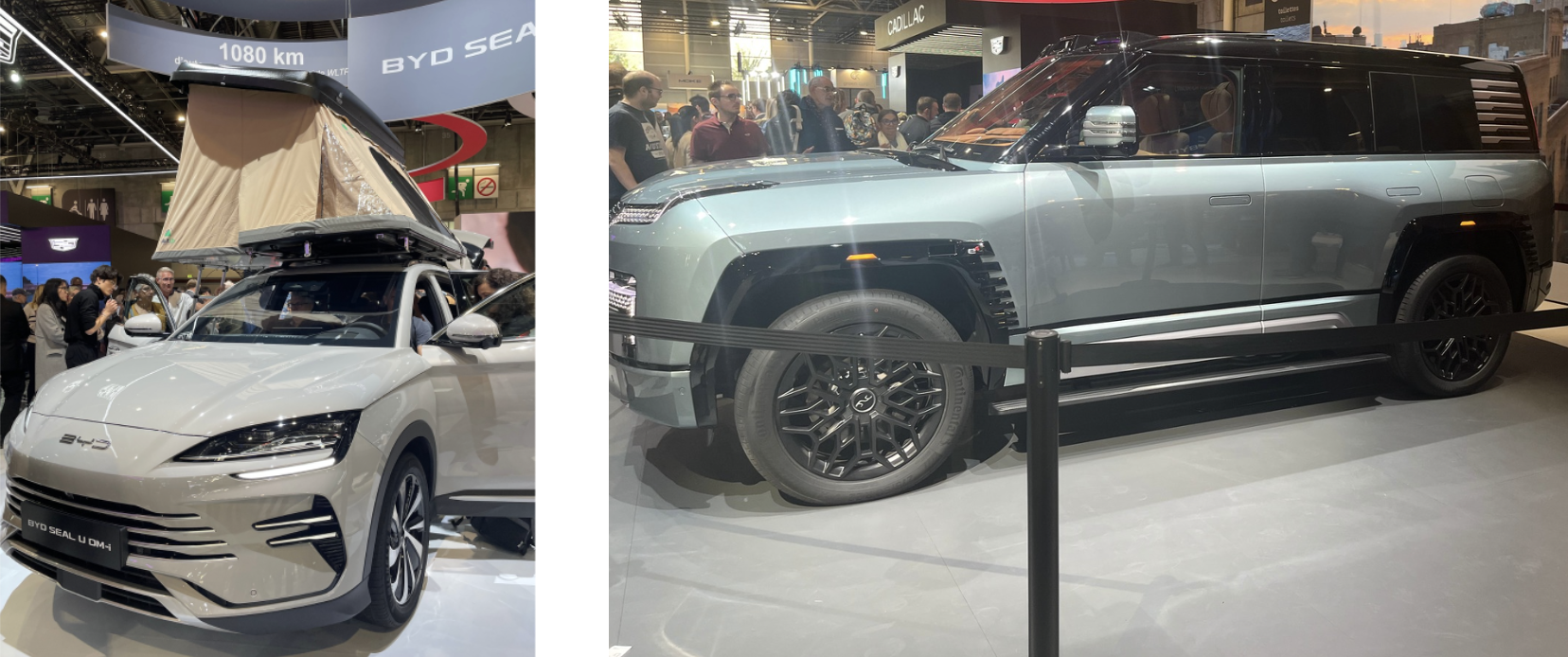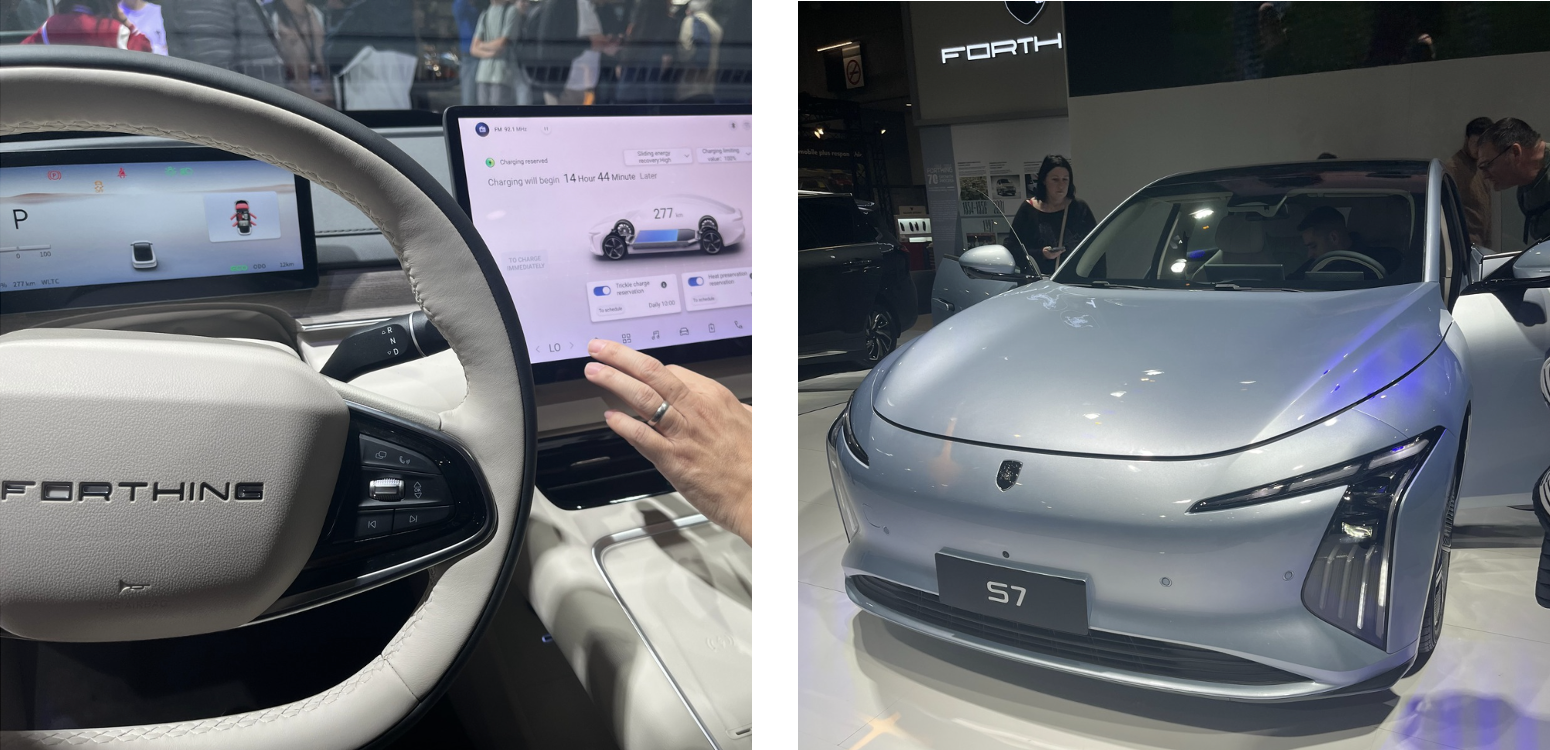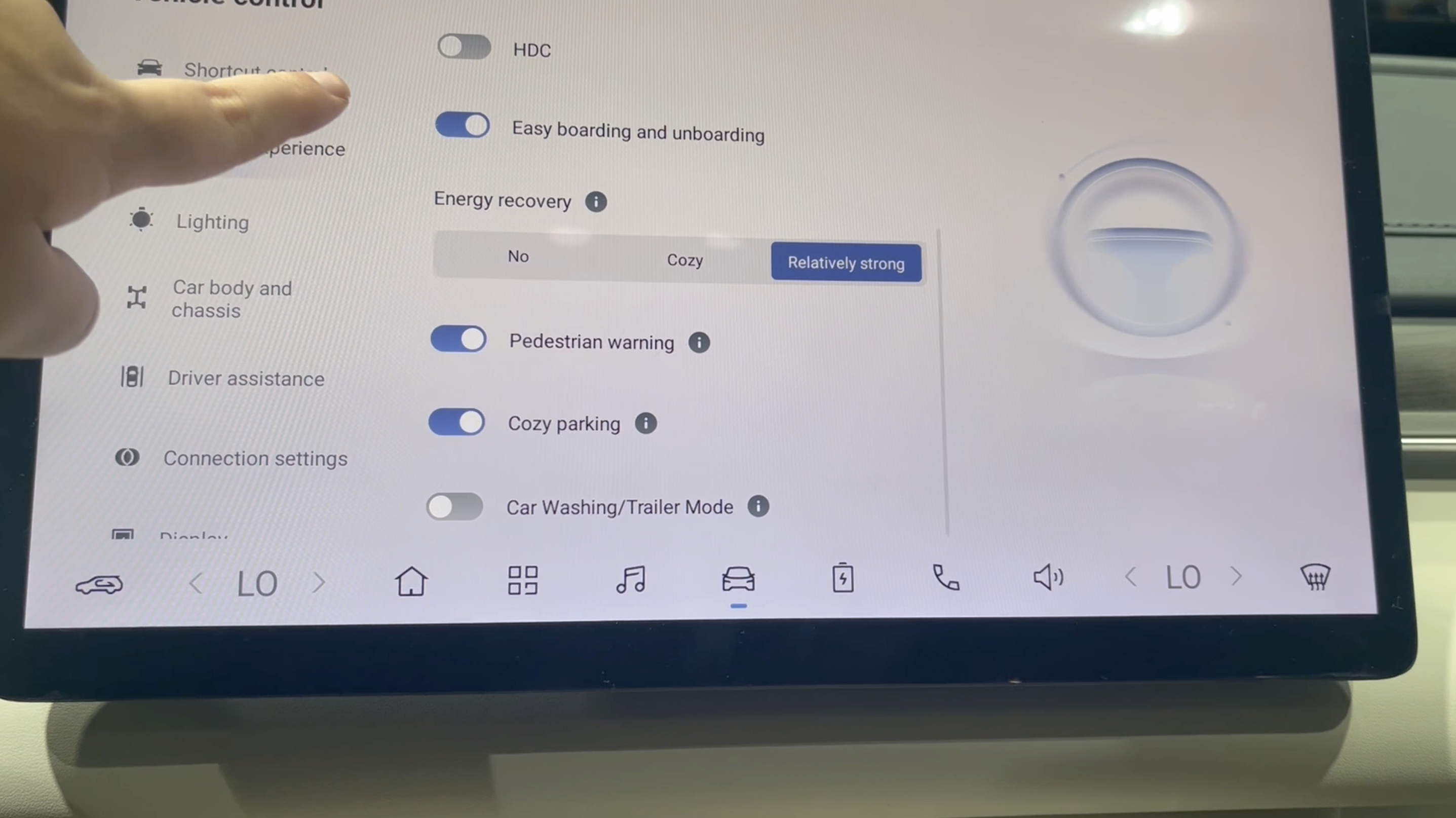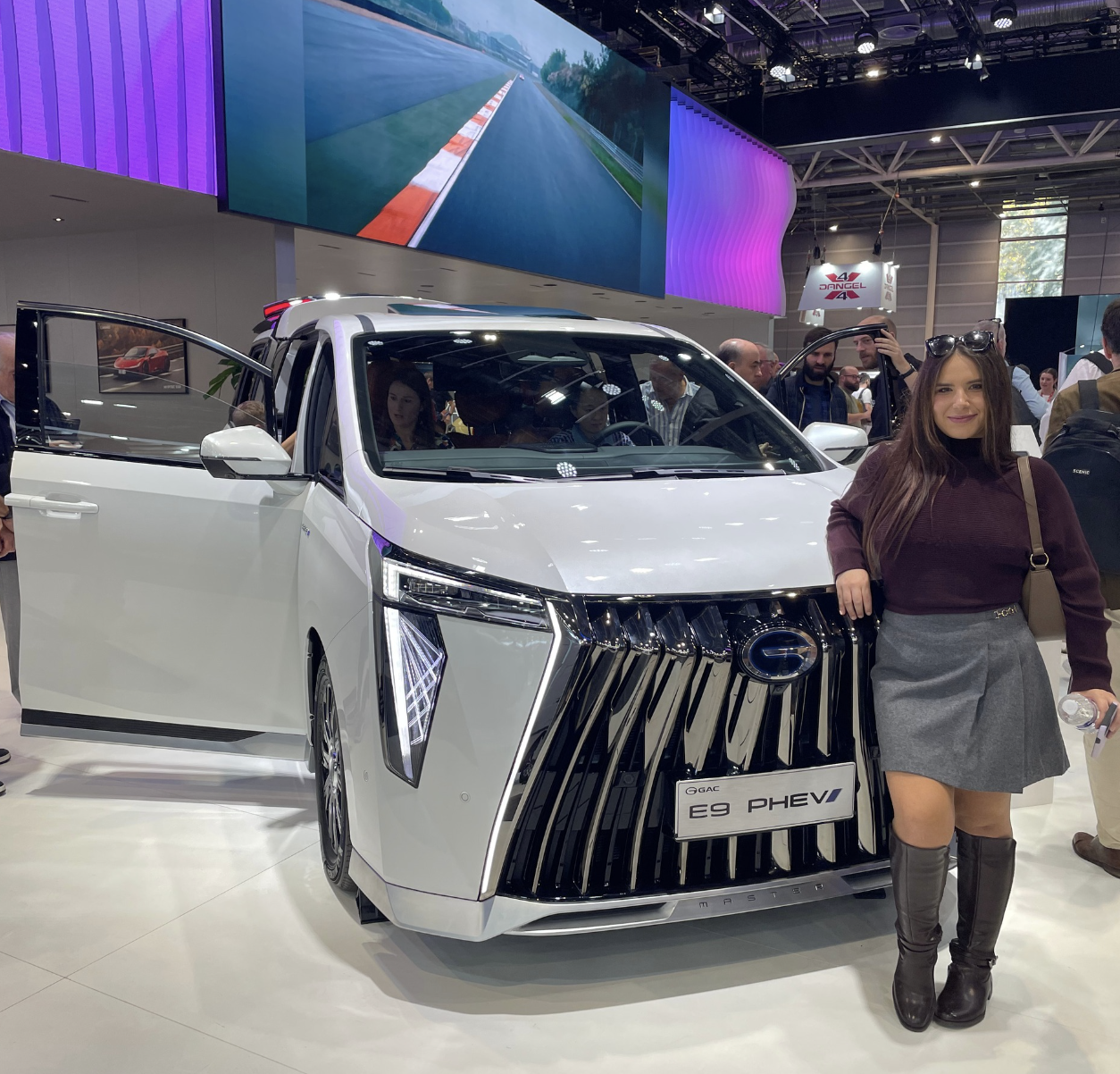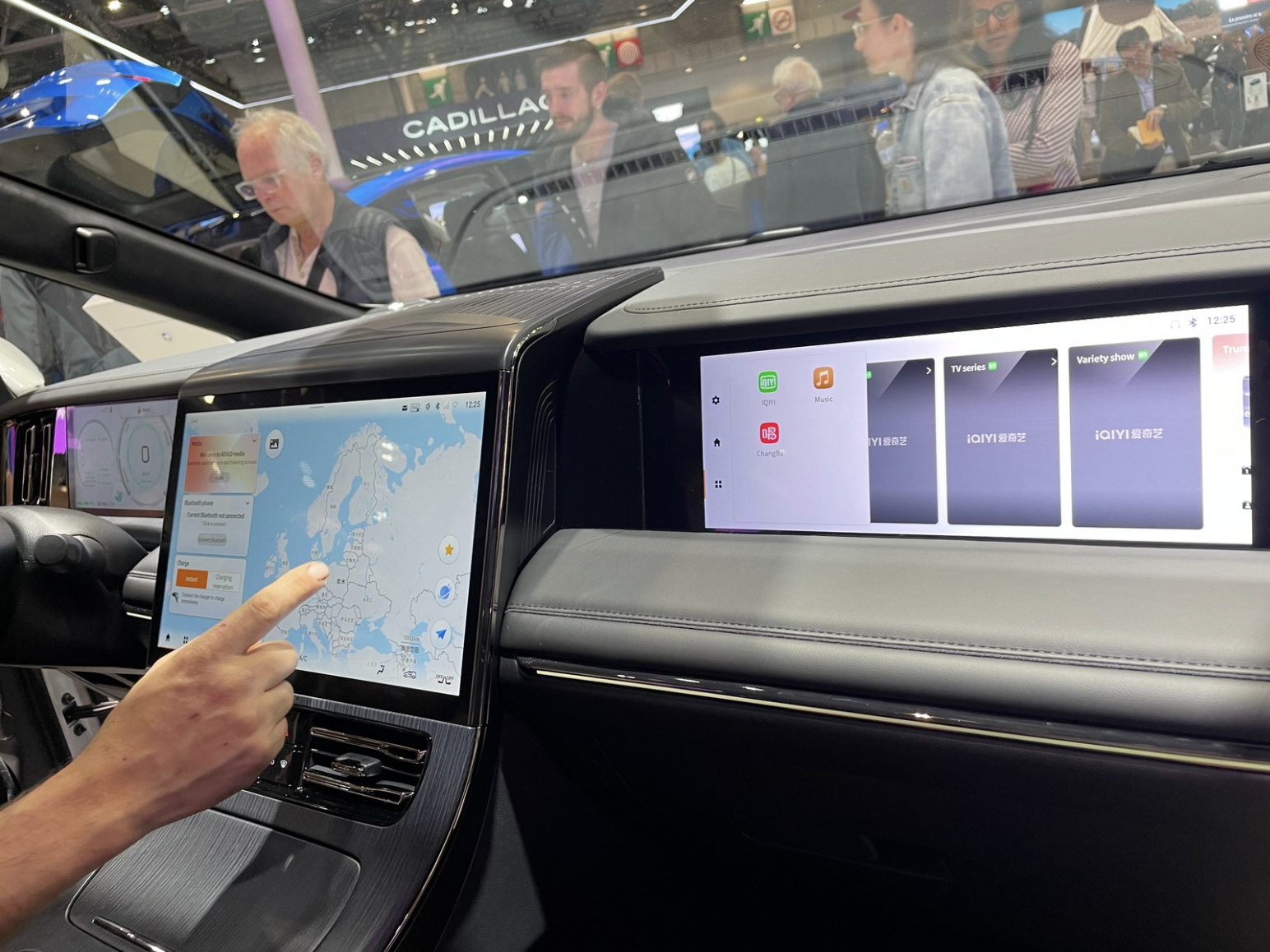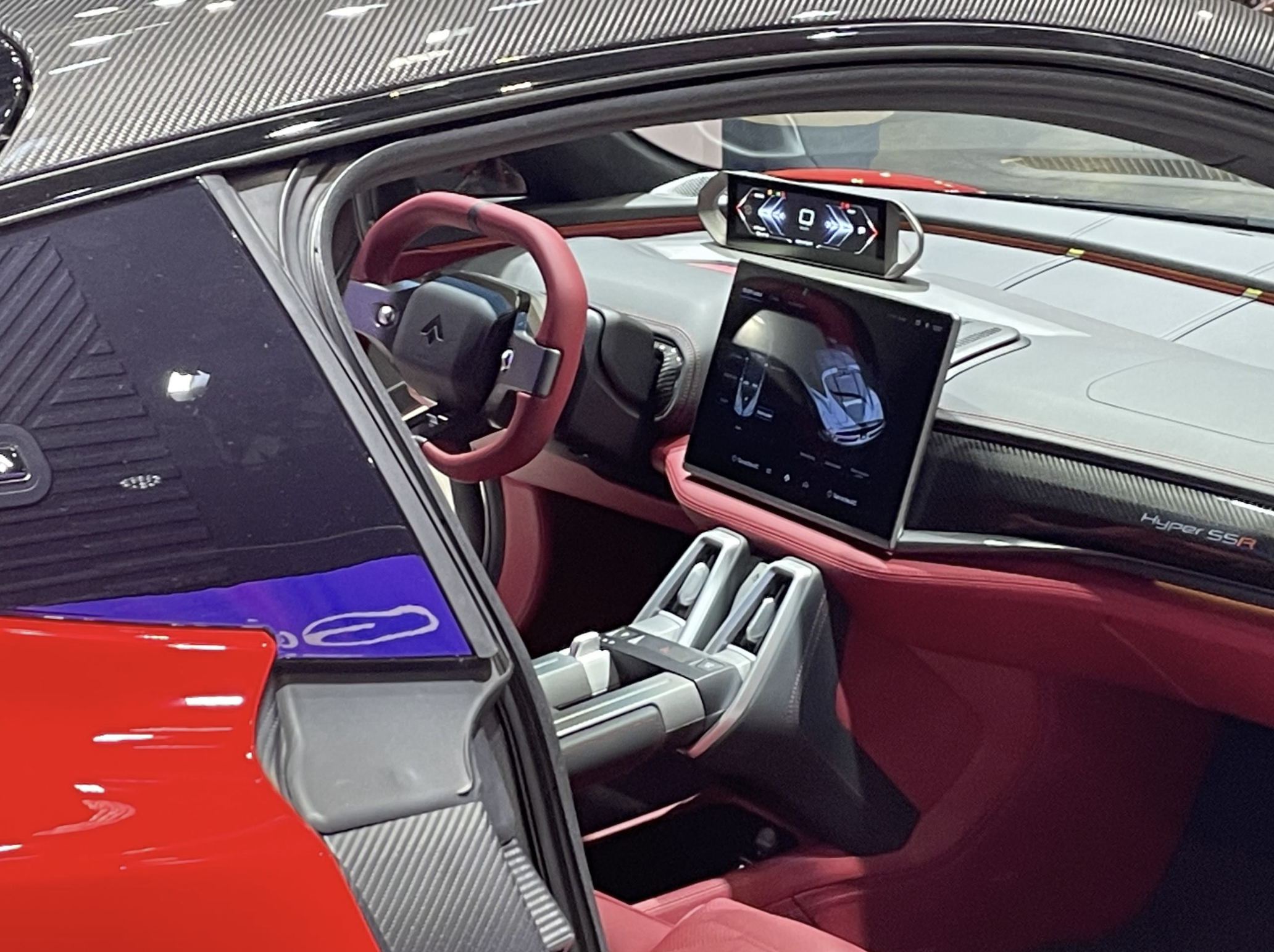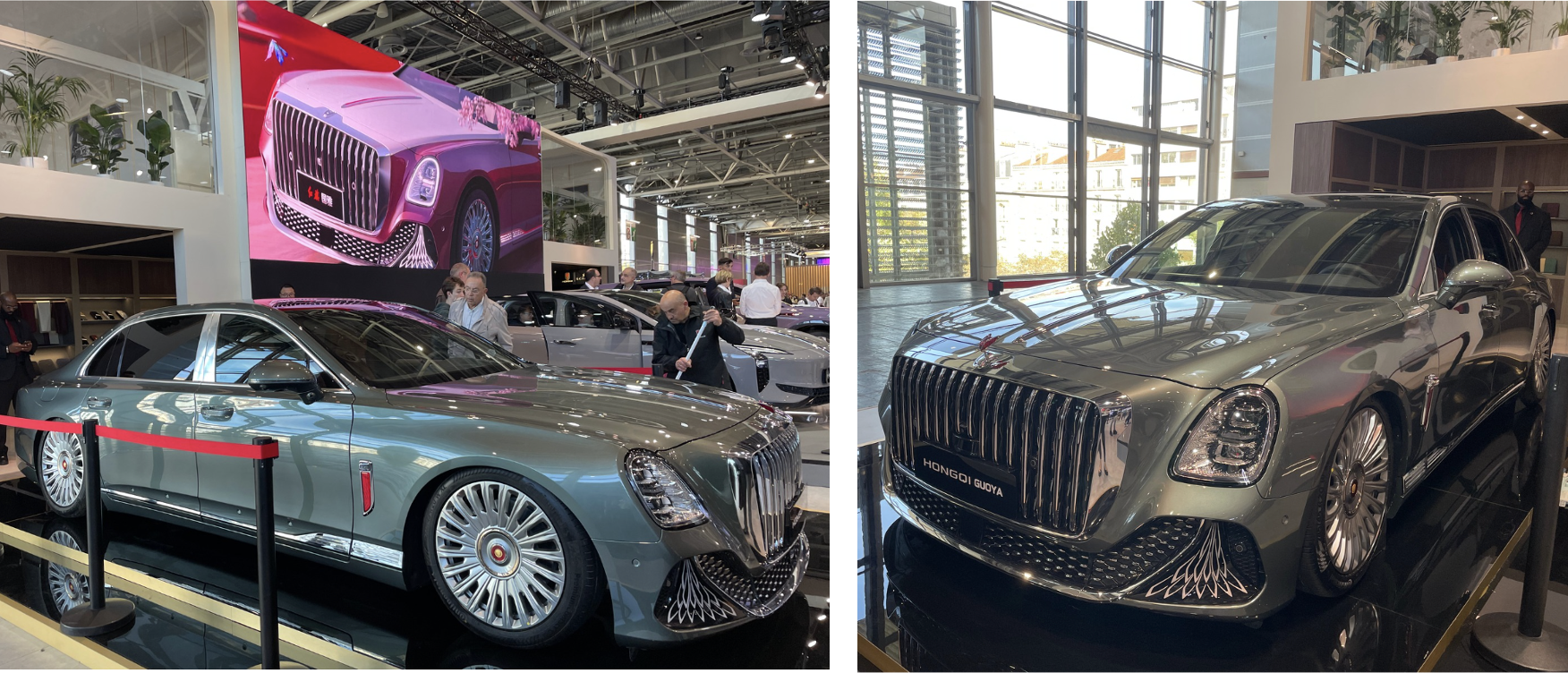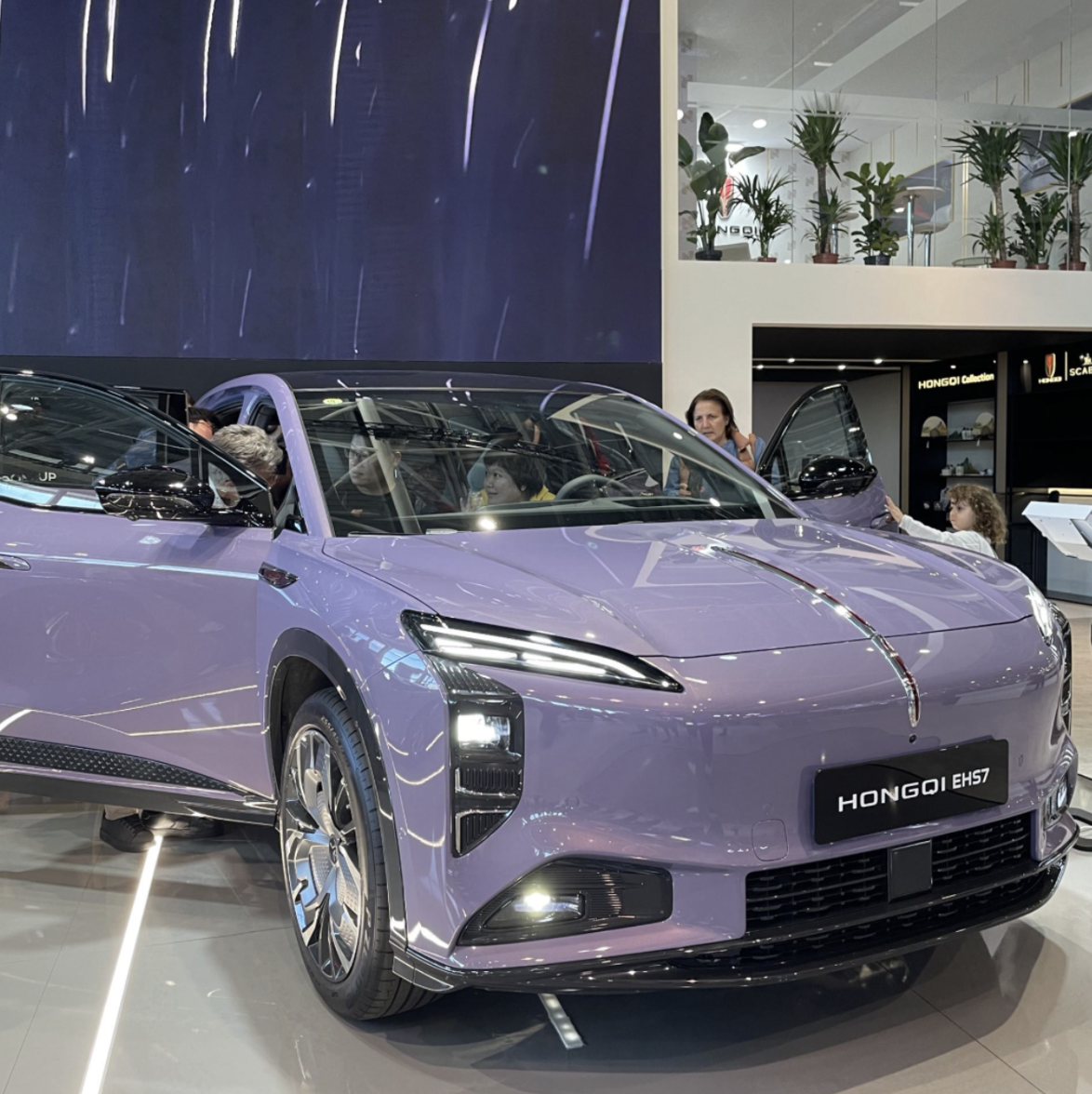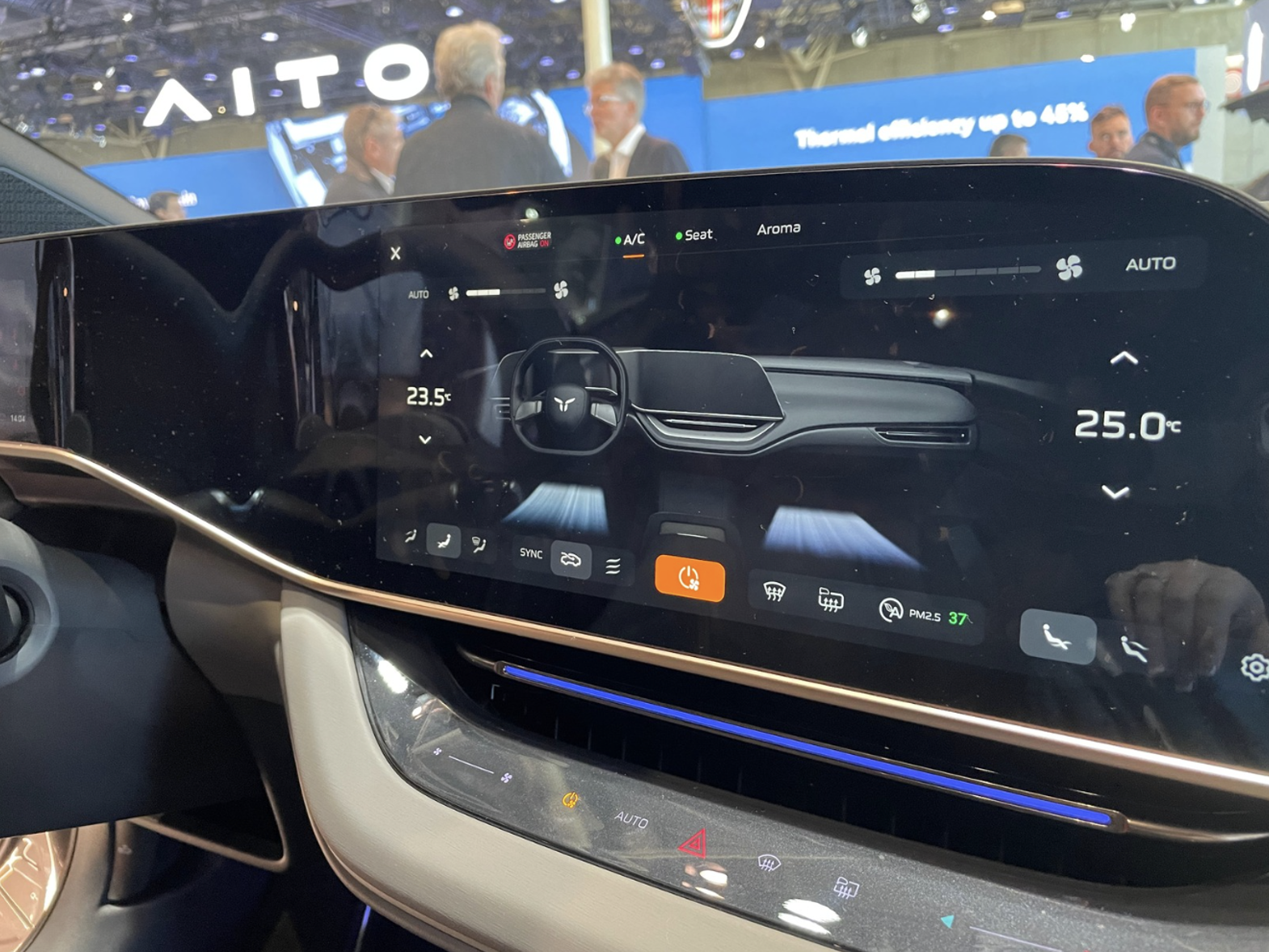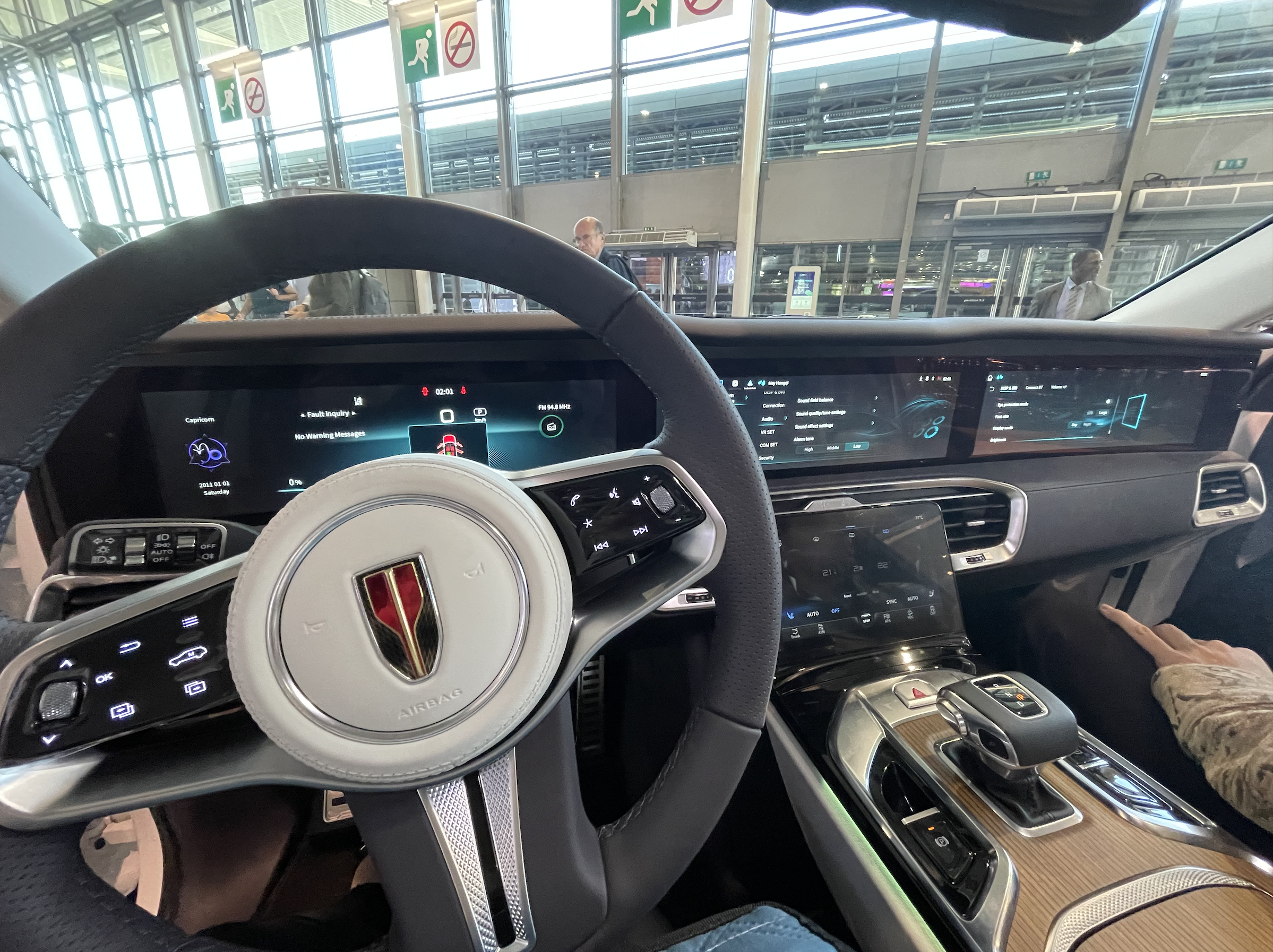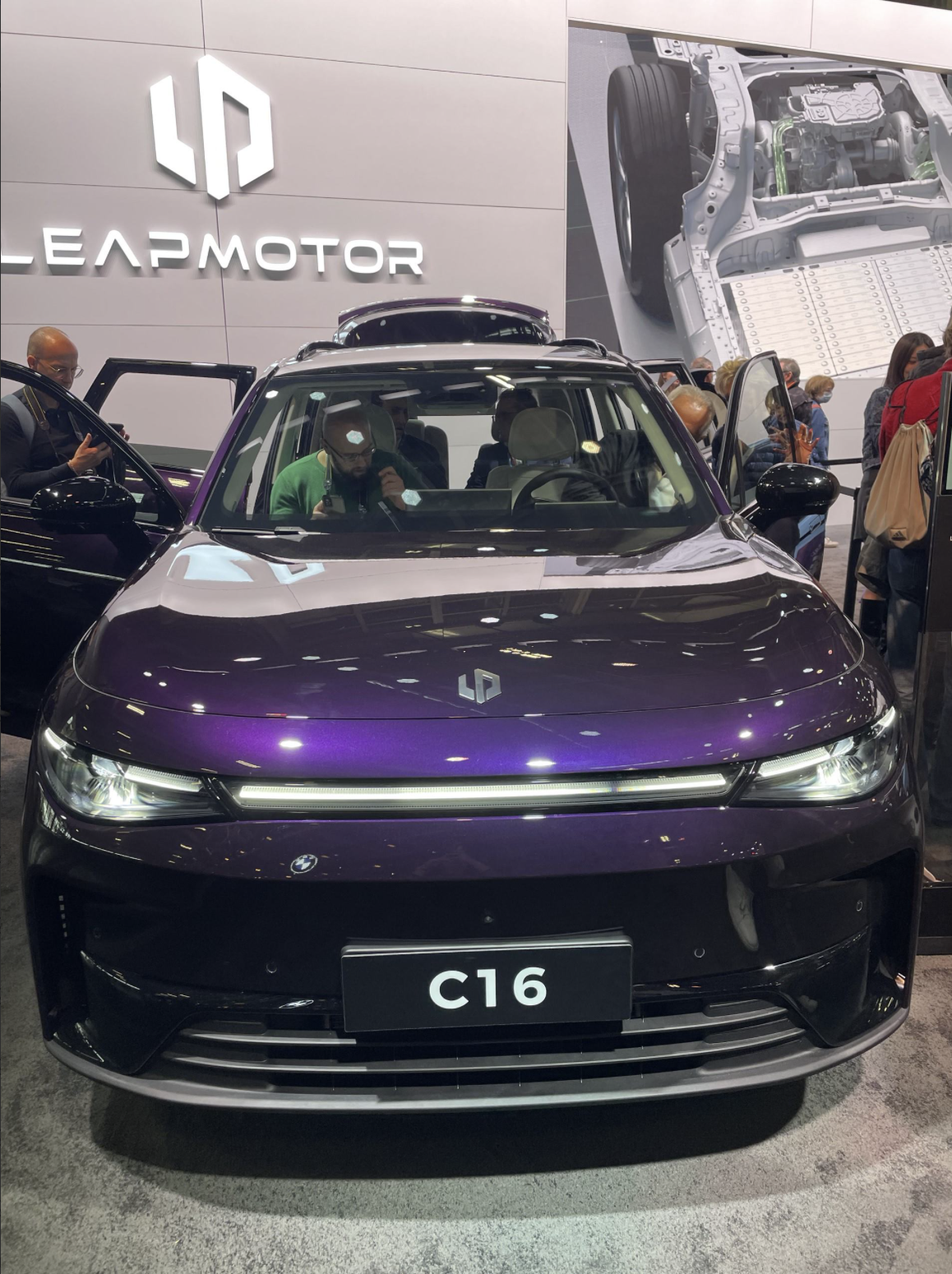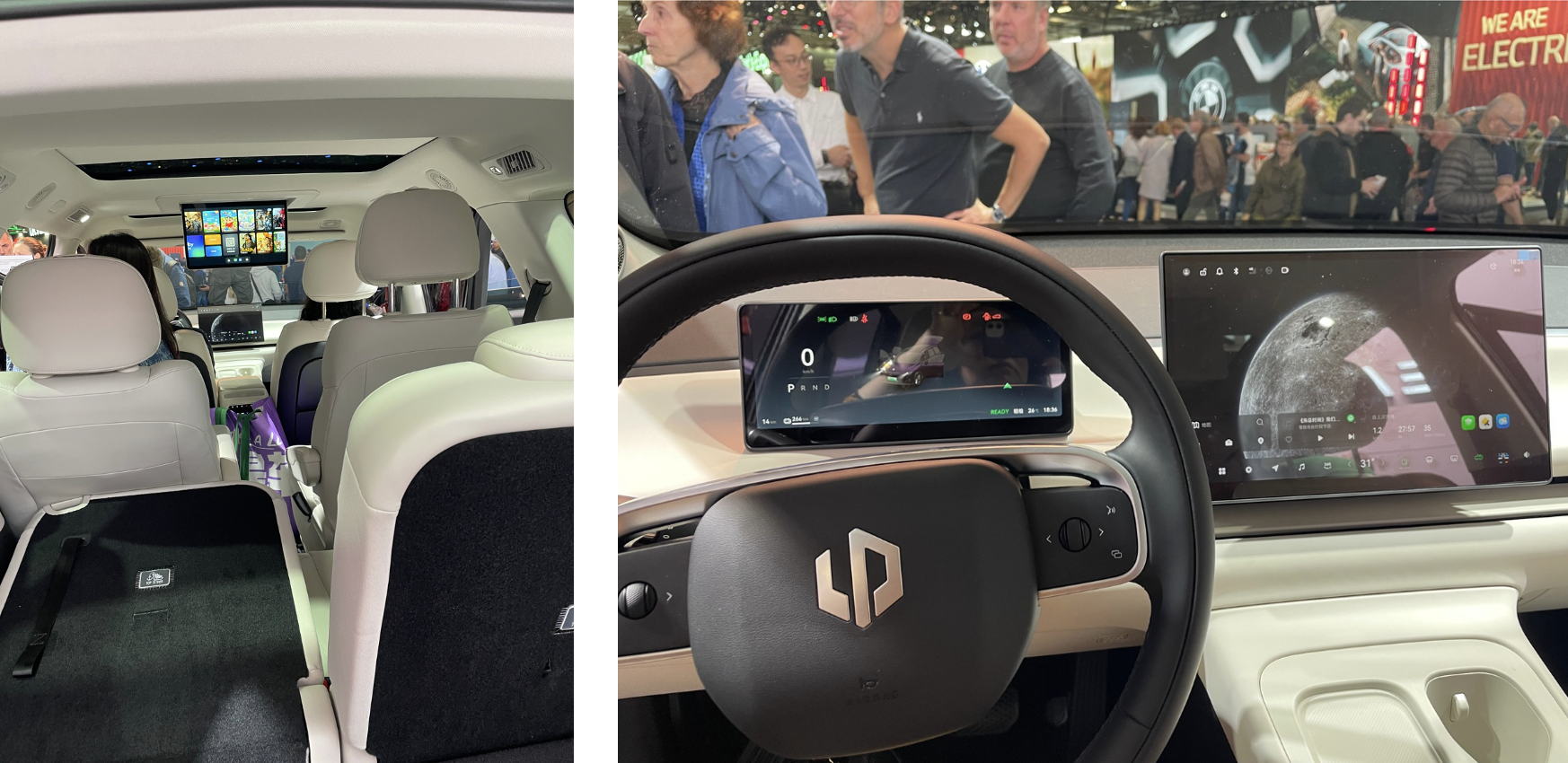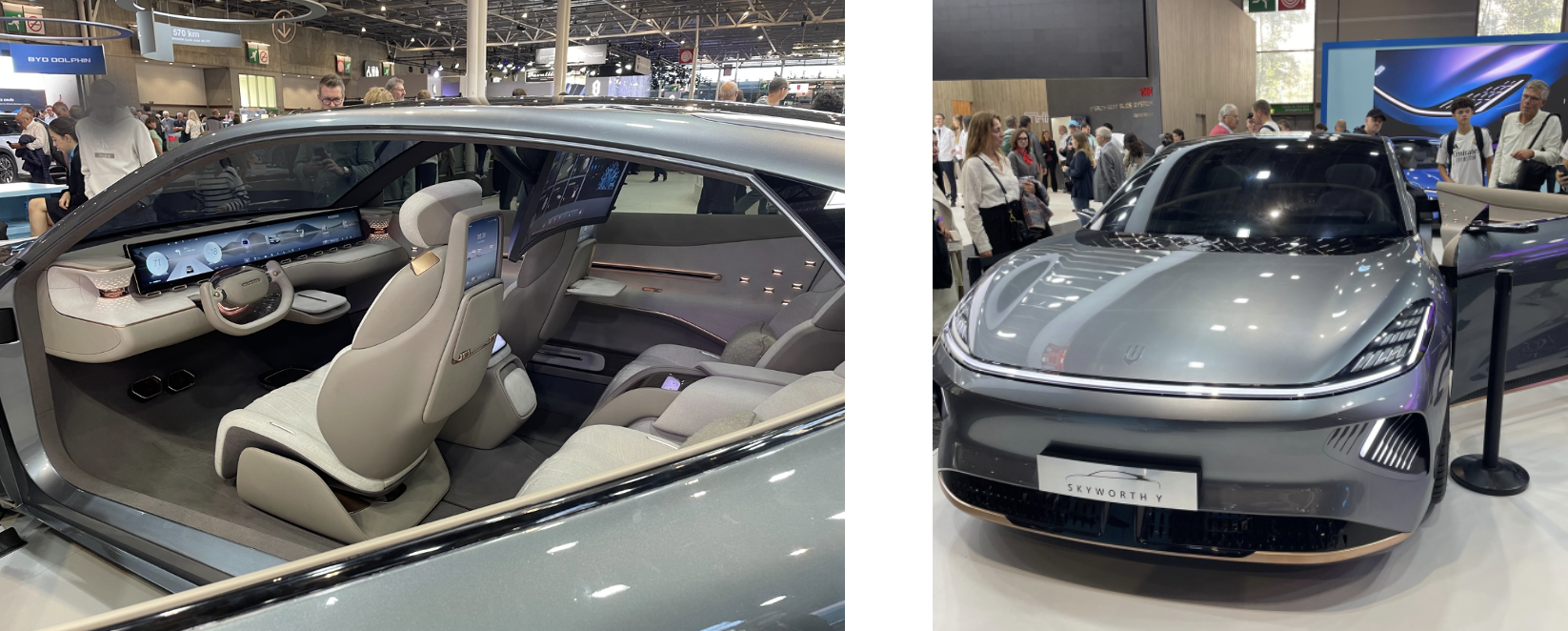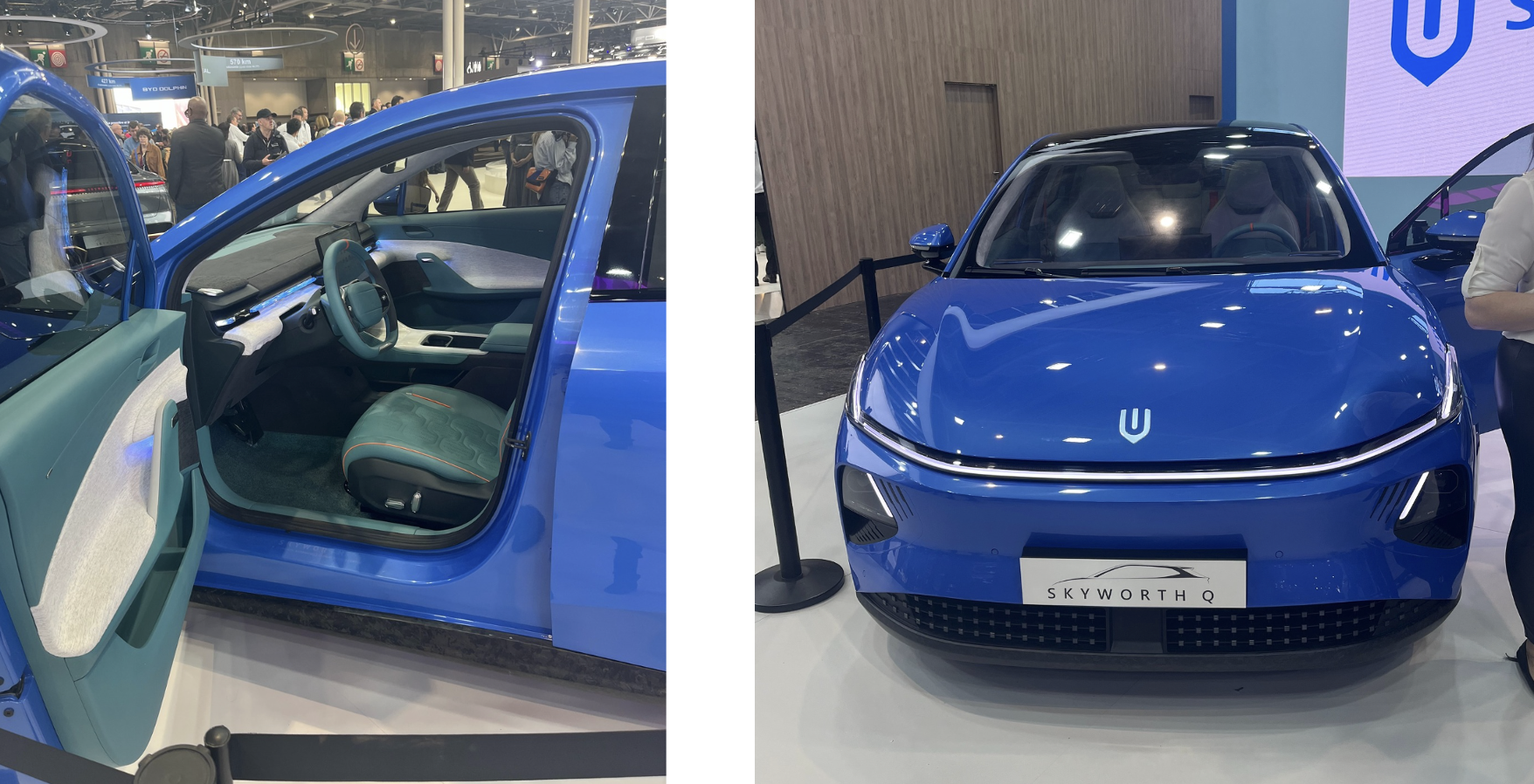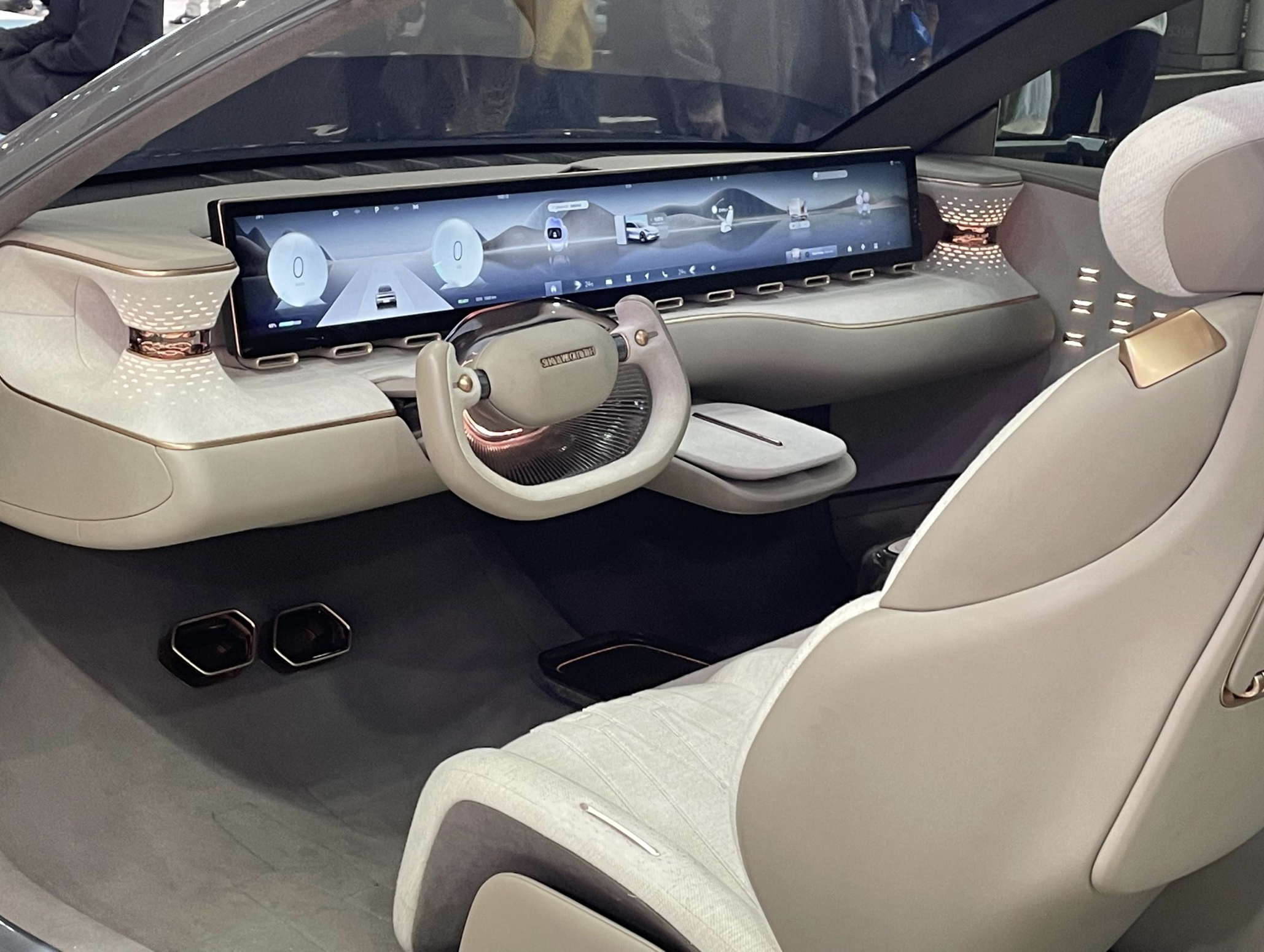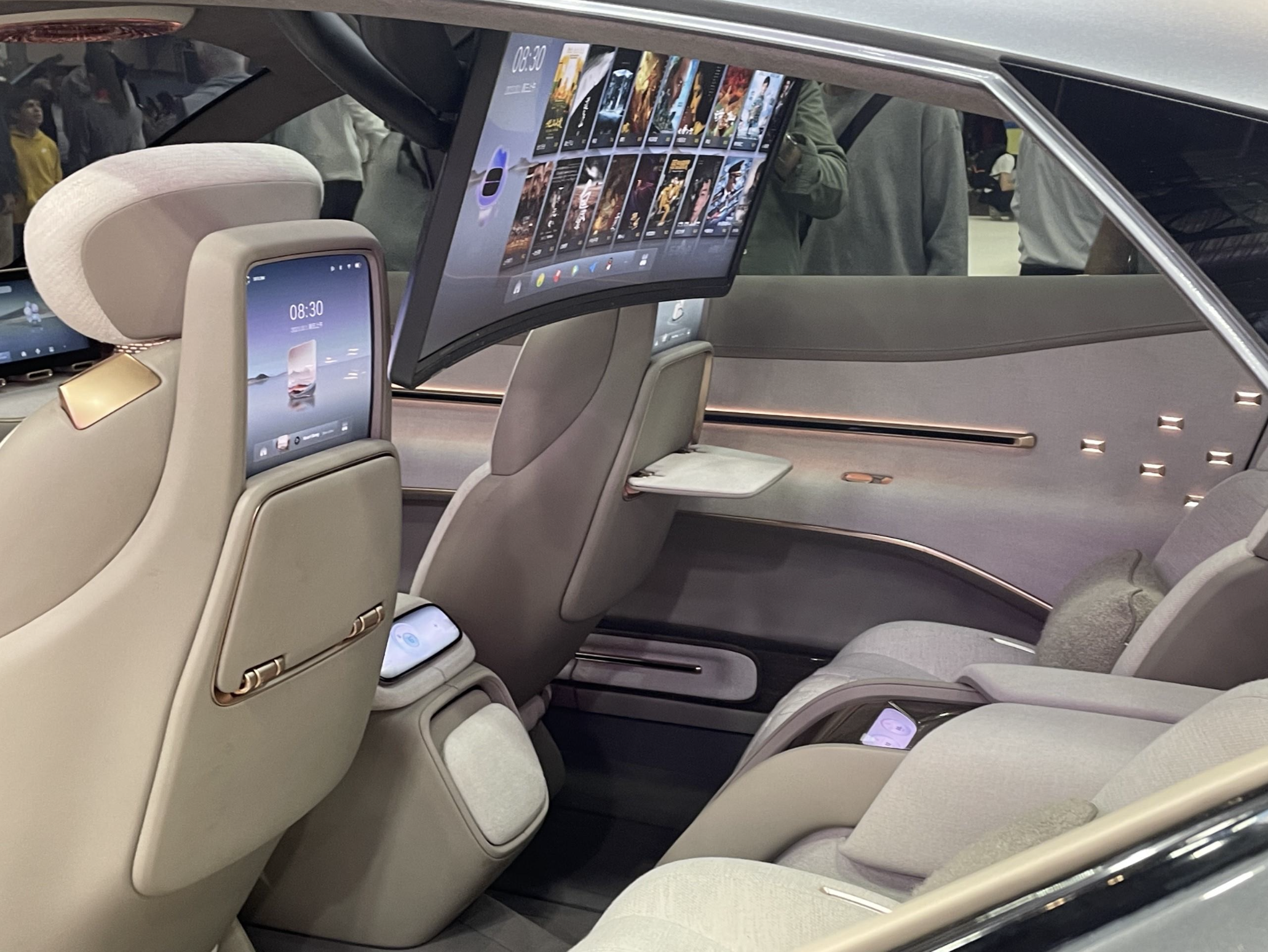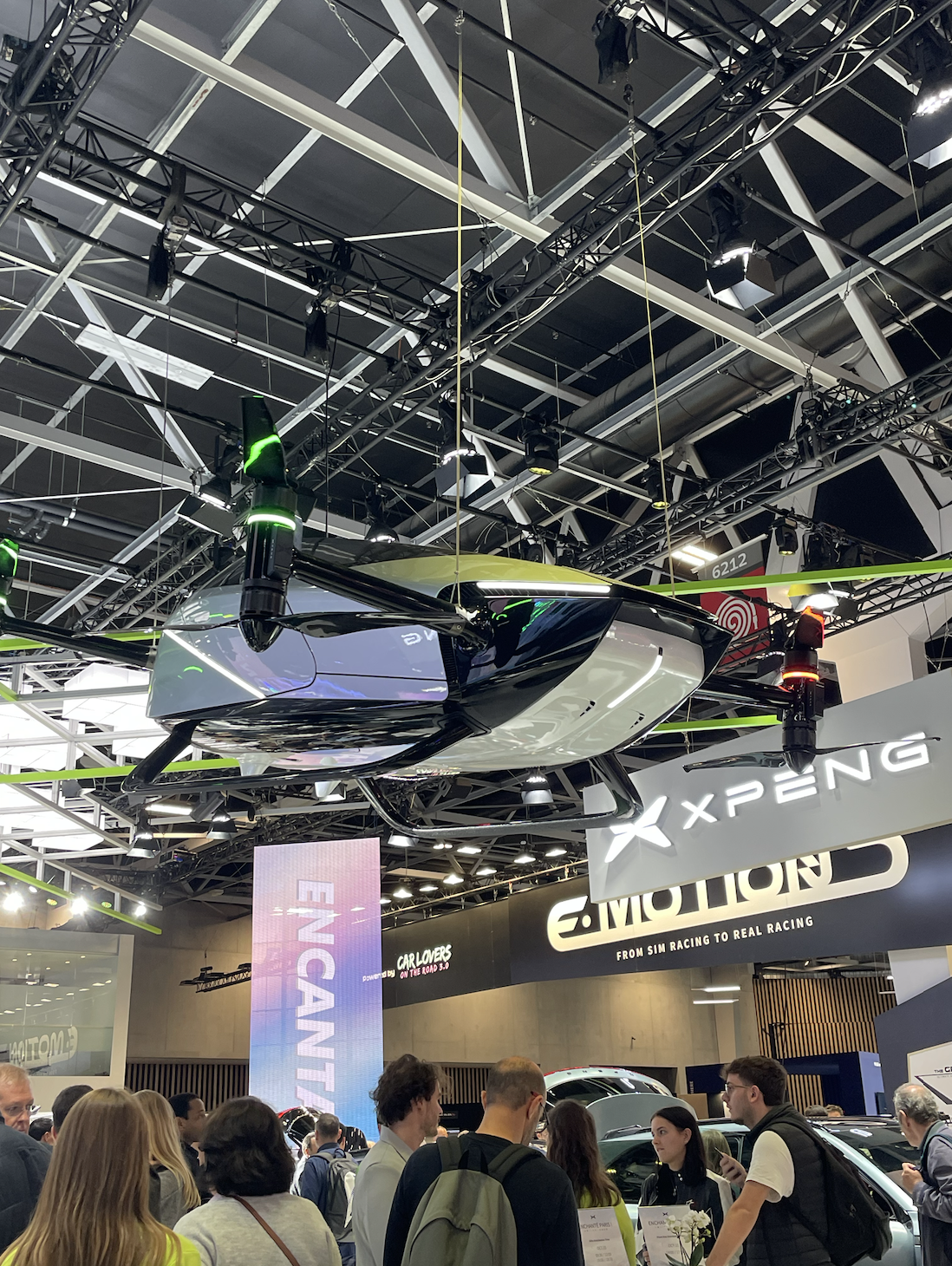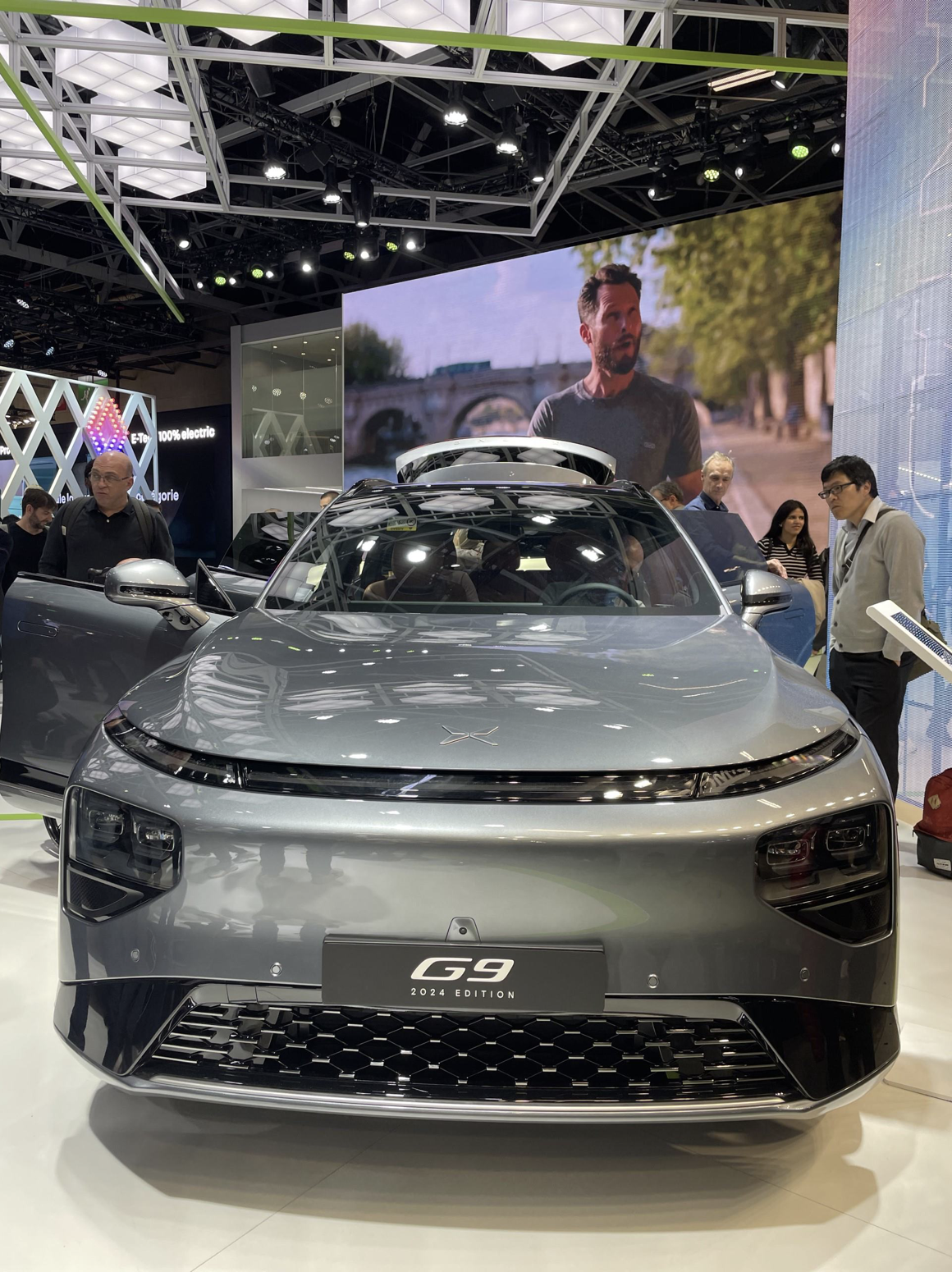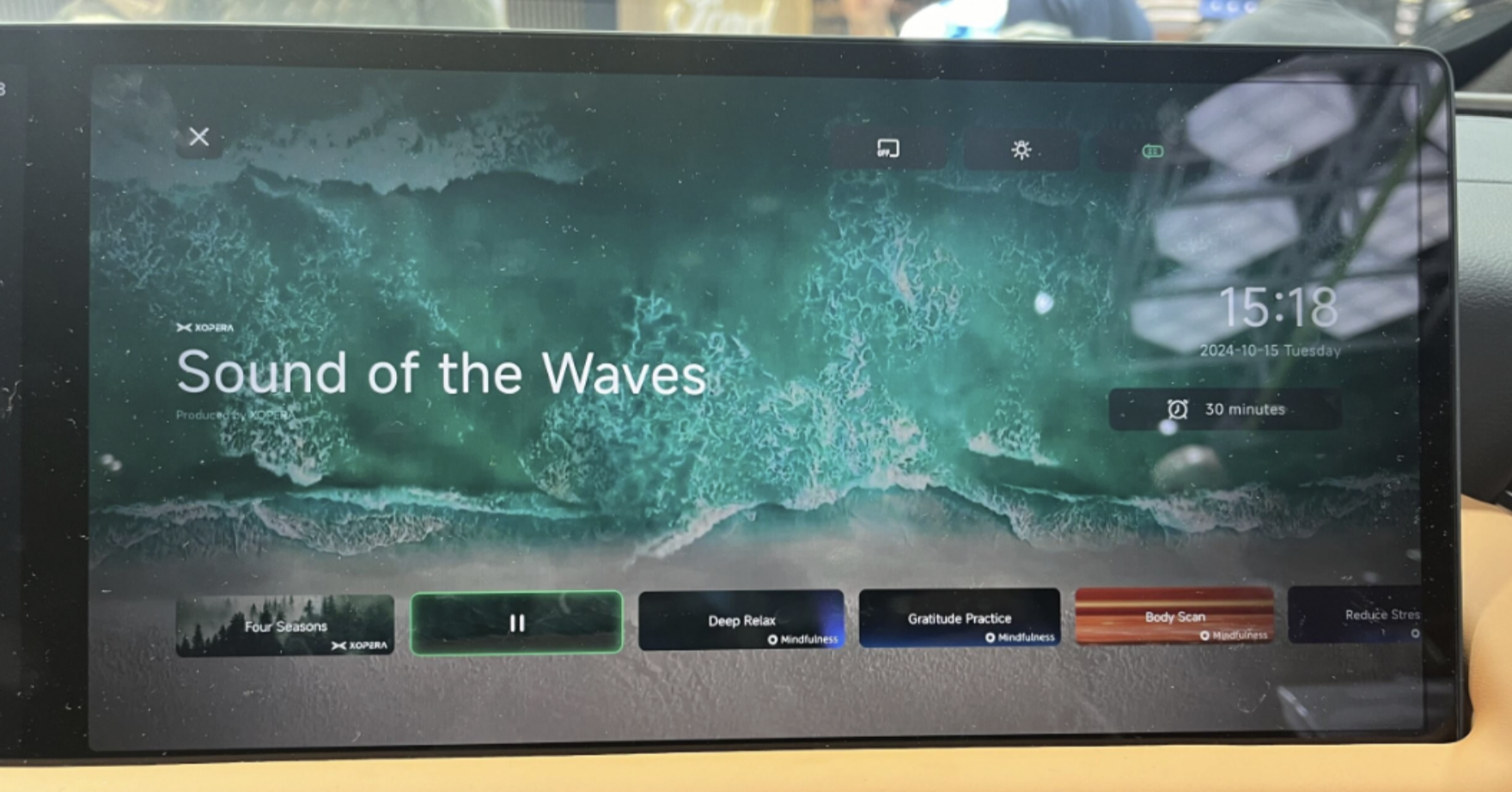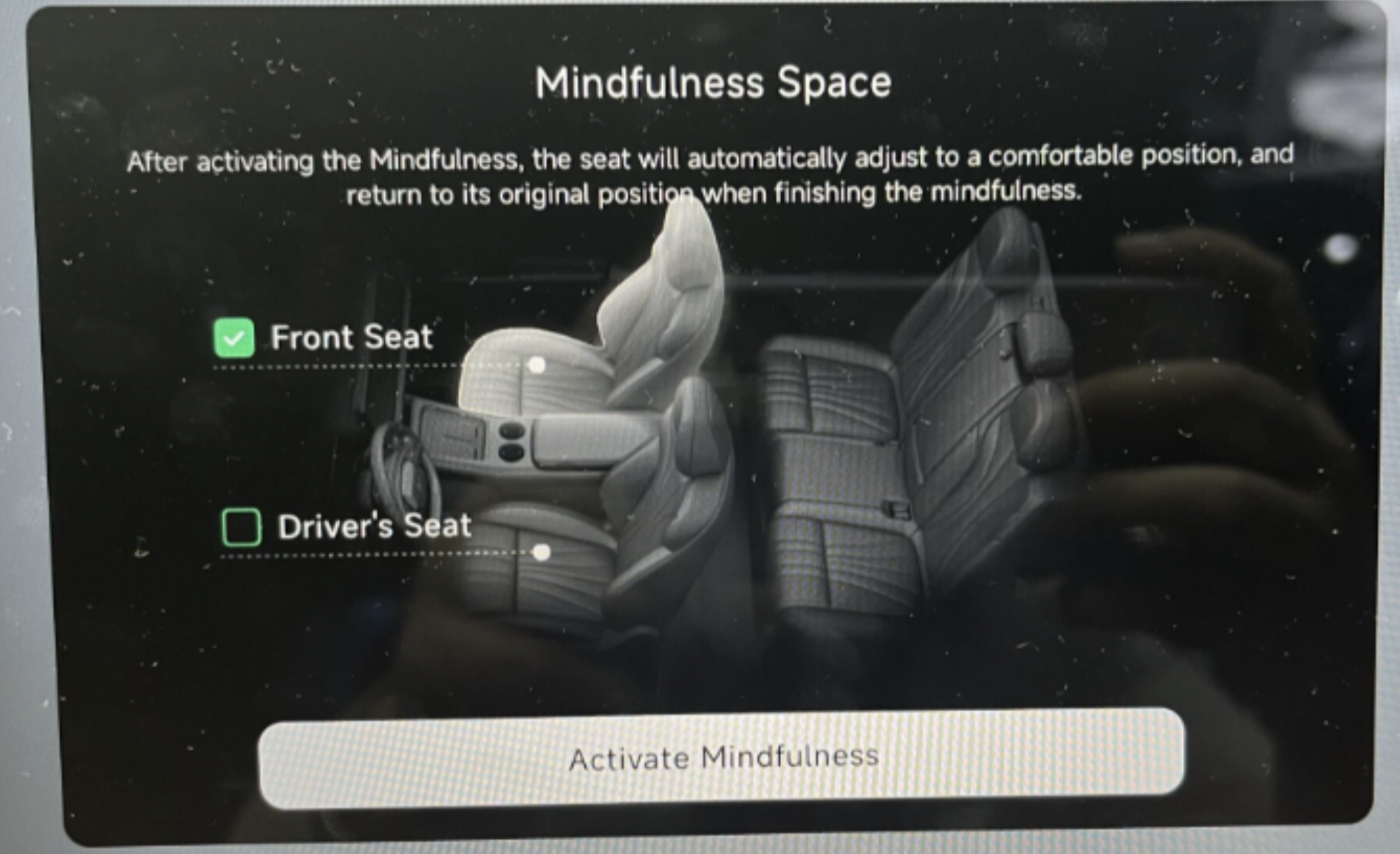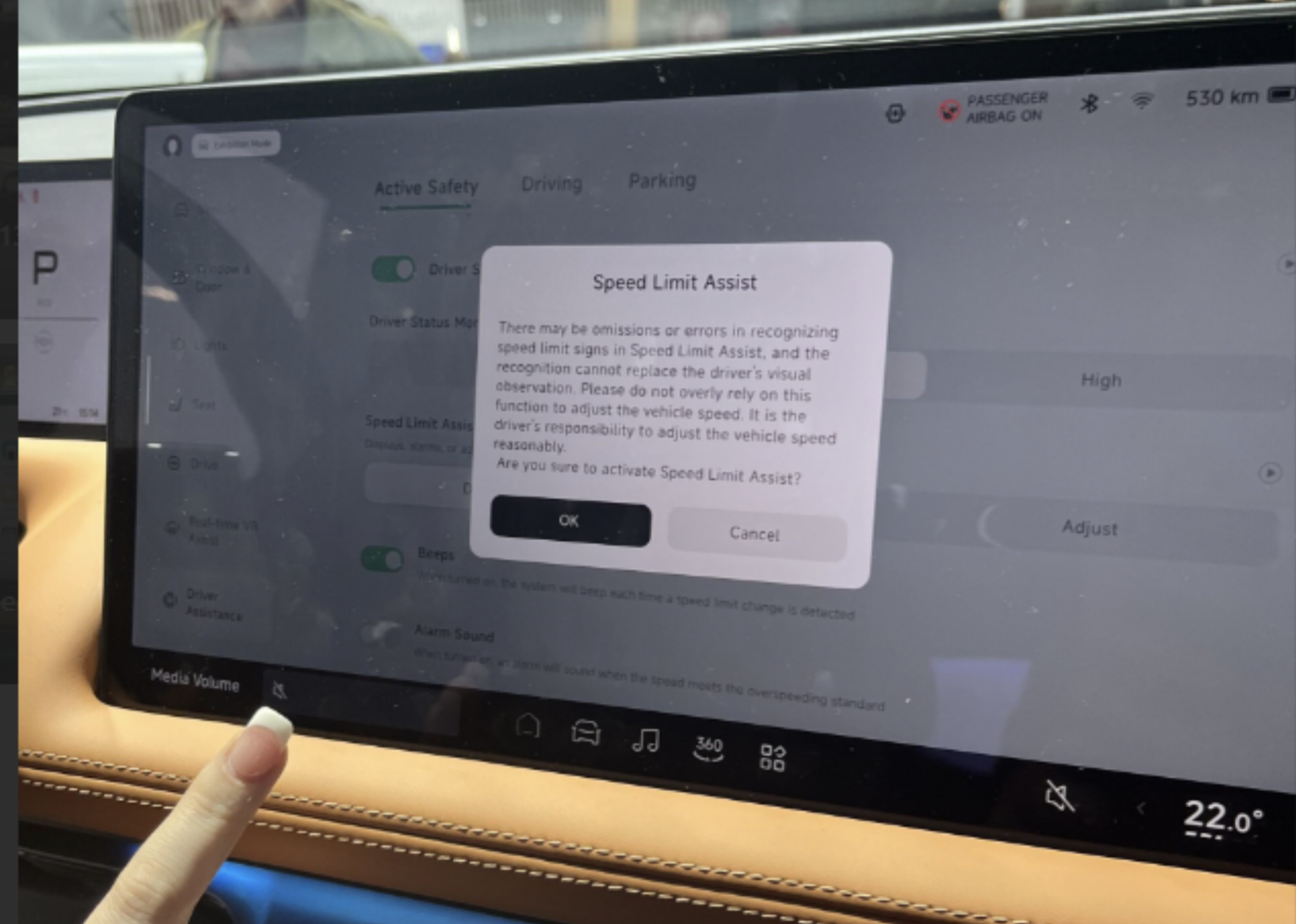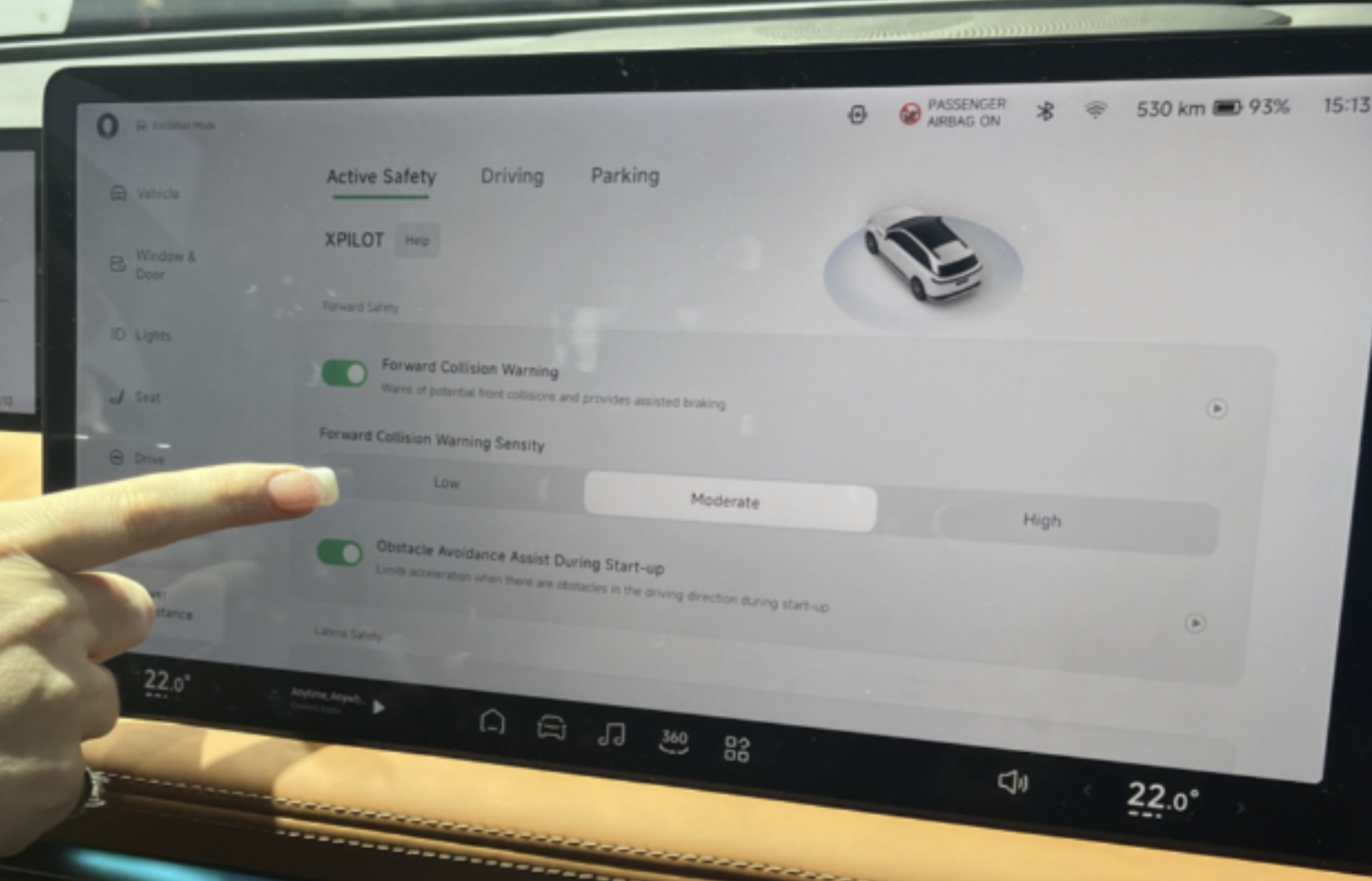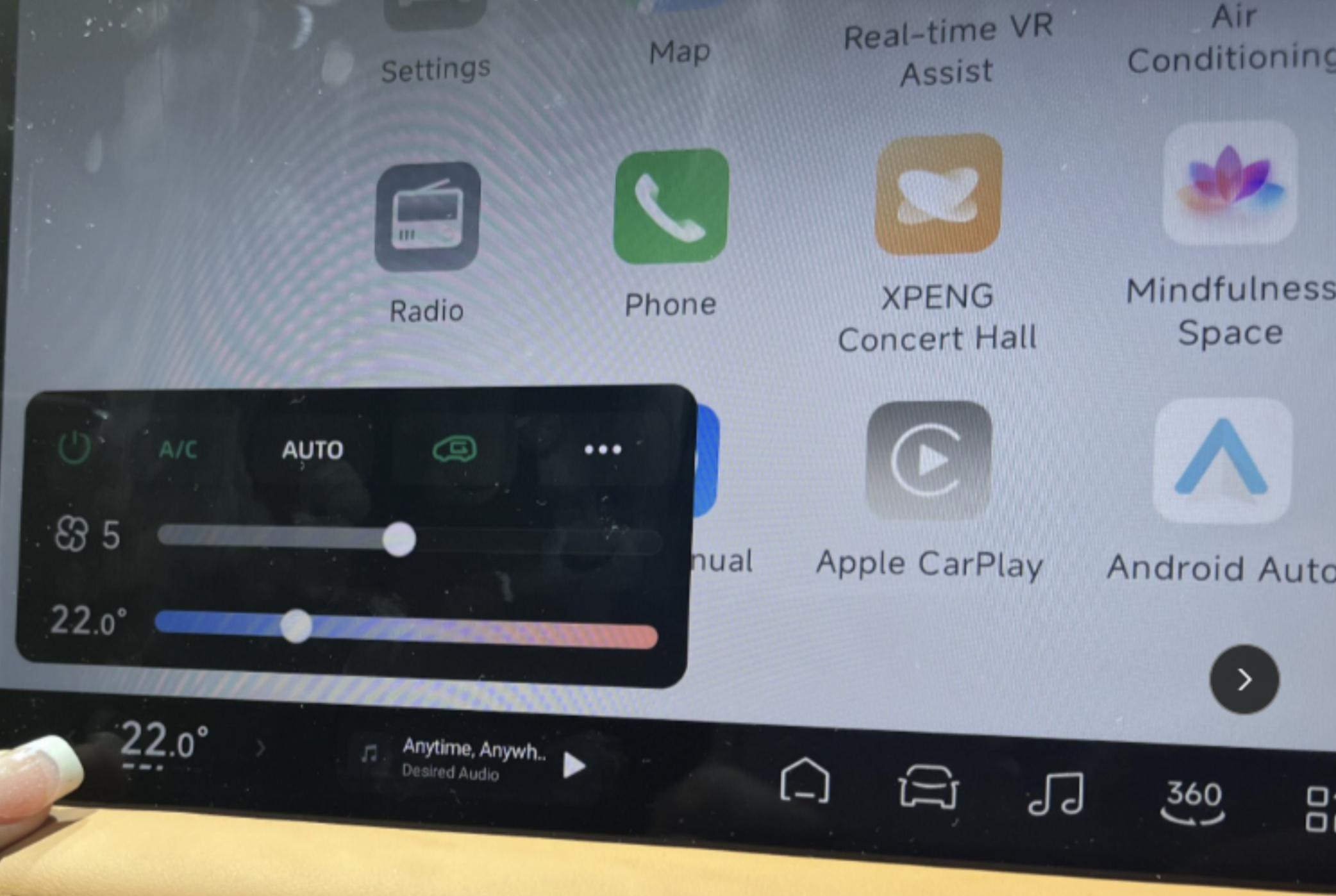Discoveries at Mondial De l’Auto
This report highlights key insights about the Chinese OEMs we gathered during the Paris Motor Show, which Melissa Agosta and I attended the week after AutoSens and InCabin Europe. Melissa and I focused on specific aspects of the new cars that caught our attention. The OEMs included here are AITO, BYD, Hongqi, Skyworth, Xpeng, Leap, and GAC, each bringing unique innovations and design elements.
Key Elements:
- Size and shape of the map for easy viewing
- Display configurations
- Ease of switching between map and music
- Physical buttons vs. touchscreen vs. fixed digital controls*
- System flexibility for ADAS features—how much the driver can adjust these features
- User-friendly information—helping users understand their system
Trends We Found with Chinese OEMs:
- These personal vehicles are designed for comfort on longer road trips.
- The comfort experience is enhanced with features like massaging seats, spacious interiors, and mindfulness/well-being settings.
- The aesthetics are very appealing, characterized by clean, simple designs with curved lines and luxury finishes.
- A rich array of options and extensive control over ADAS features are available.
- Prices for models with all the premium features range from €40,000 to €60,000.
AITO
The AITO booth made a strong impression, and the vehicles were exceptionally comfortable. We explored the AITO 7 and AITO 9 models.
AITO is a global brand with vehicles available in Asia, and I anticipate their entry into the European market by mid-2025. Notably, their vehicles feature self-parking technology, allowing the driver to exit the vehicle while it parks itself. They also highlighted their anti-burn technology. Prices range from €45,000 to €70,000.
The cockpit design includes two screens: one above the steering wheel for the instrument cluster and another tablet-style screen for infotainment. The steering wheel is equipped with numerous buttons.
Additionally, the AITO features a projector for passenger entertainment and reclining seats with footrests for added comfort.
AITO 9 seat positioning
BYD
We saw the SEAL, SEALION 7, DOLPHIN, ATTO 3, Yangwang U8, and SEAL U DM-1. The stand had a playful vibe, with all the sea life-themed car names and even an in-car karaoke setup. They also showcased a very cool camper car, complete with a full tent on top, perfect for road trips.
BYD Interior options
These vehicles offer excellent control over the HUD and driver monitoring systems. For advanced features, an info icon provides explanations about each function. The displays were tablet-style center consoles, and as you’ll see in the video below, the screen even rotates!
BYD rotating screen
Forthing
Forthing offers both 100% electric and hybrid cars in China. Their Friday and S7 electric models are priced around €40,000, while the V9 and M4HEV hybrids range from €50,000 to €60,000. I particularly love their logo.
The aesthetics of the cars are clean and crisp, predominantly in white and grey. The driver’s instrument cluster features a tablet-style screen positioned above the steering wheel. Additionally, there is a large horizontal tablet-style screen in the center for a custom setup and car information. The cars also include a set of fixed digital controls for temperature, calls, and infotainment. Notably, the system supports Android Auto.
Forthing Driving Experience Options
GAC
GAC, the Chinese arm of Toyota, is known for its advanced technology. Their cars are made entirely of carbon fiber and use a magazine battery. I was impressed by how different their models look from each other compared to most OEMs. Each car had a unique design, making it hard to tell they were related. I liked that a lot, as it gives consumers a car with the personality they want. Growing up around 60s and 70s U.S. classics like the Impala, El Dorado, and Thunderbird, I miss the personality cars used to have, and GAC seems to be bringing that back.
We sat in the ES9 PHEV and the E9 PHEV. The E9 has a domineering front end with a grille that stretches from just a few inches off the ground to about waist height on a small adult. The headlights are huge and tall, complementing the extreme grille design.
The in-car experience was fantastic. The rear passenger seats were large massage chairs with controls on the armrest, allowing me to adjust the massage, seat heating or cooling, recline the seat, and extend a footrest.
GAC Rear seat experience
In the front, there are three displays: one in the center, one for the driver, and one for the passenger. The latter two are set into the dash, as is the center display. This integrated design felt more appealing than the tablet style.
We didn’t get to sit in their very attractive sports car, the HYPTEC SSR, but I took some pictures of the interior cockpit. The driver’s instrument cluster is on a short, wide screen about 1 to 1.5 feet away from the steering wheel. There was also a large central display. The steering wheel had only a few buttons and was more rectangular than circular.
HONGQI
Hongqi was very memorable, especially as they showcased a copy of the President’s car, which they manufacture. They explained that the name means “state elegance,” which perfectly described it.
Their latest model will go into production in 2025 in China. For Europe, models are currently available in Denmark and France.
The EHS9 is electric, and they are also providing an L3 model using LiDAR.
The cockpit featured four screens: three short, wide ones placed side by side, spanning from pillar to pillar, and uniquely, a small tablet below the central screen, which seemed to house the fixed digital controls for climate, trunk, etc.
The options included checking the weather, setting a driver fatigue alarm, and automatic parking. There was also extensive control over Lane Departure Warning, Lane Keep Assist, and collision warnings.
HONGQI Settings Menu
Leapmotor & Leap International
Leap has been around for 5-6 years, with divisions in China (Hangzhou) and Europe. Stellantis has invested €1.5 billion as part of a joint venture with Leap. The full stack is made in-house, and approximately 60% of the vehicle elements are produced by Leap. One of their advanced models is equipped with LiDAR.
The interior was gorgeous and spacious, featuring large screens. The screen was set to Chinese, so I couldn’t read the options, but the UI was intuitive enough that I could easily find the map, music, and temperature controls. The display included fixed digital controls, making navigation between functions simple.
The buttons on the steering wheel were limited in number and appeared to be dynamic, which I liked.
Skyworth
Skyworth showcased three models. The SUV, called the K, is electric and priced around €42,000. The Y and Q models are concept cars slated for next year.
Regarding safety features, they informed us that the cars are equipped with six airbags, ABS, AEB, and security systems. These models are available in France, Switzerland, Spain, Luxembourg, and Portugal.
The Skyworth Y concept featured one of my favorite sedan interiors. It used a single display, not quite pillar to pillar, but nearly so and centered. The design focused on elegance, reminiscent of a high-end hotel, with gold finishes, a unique U-shaped steering wheel, and pedals that looked like art.
The rear seat includes a giant screen in the middle, two individual screens for each passenger, and two screens in the center console, presumably for temperature control, along with tray tables. I expect this model to be priced around €60,000.
Xpeng
Xpeng was the first Chinese OEM we visited, and it was very impressive. While we were at the booth, a musician was playing the theremin—an instrument he didn’t touch, instead waving his hands around it to play notes using sensors. It was fantastic!
They also showcased their flying car, which is already in operation in Dubai.
We spent most of our time in the G9. The car can isolate sound to a specific area, and it can play your music both inside and outside the car. The charger was fast, boosting my phone’s charge by 10% in just a few minutes.
They offered a Mindfulness option, where you can choose which seat to engage for this experience. It automatically adjusts the seat position and sound settings. I saw T1s demonstrating this at CES in January as the next level of comfort in cars, so seeing it in an OEM vehicle less than a year later was truly motivating—a sign of real progress already happening.
The instructions about the ADAS features were detailed and informed the driver of their responsibilities and the system limitations.
Like many Chinese OEMs, the ADAS features are highly adjustable. There were three screens in the front: one for the driver’s instrument cluster, one in the center, and one in front of the passenger seat. Adjusting the temperature was easy, no matter which app you were using.
The Paris Motor Show was a great success. It’s really exciting and interesting to see that these advanced vehicles at great prices are coming to the European markets. Competition is sure to drive better ADAS and significant improvements in the level of interior comfort features that midrange consumers can expect.


